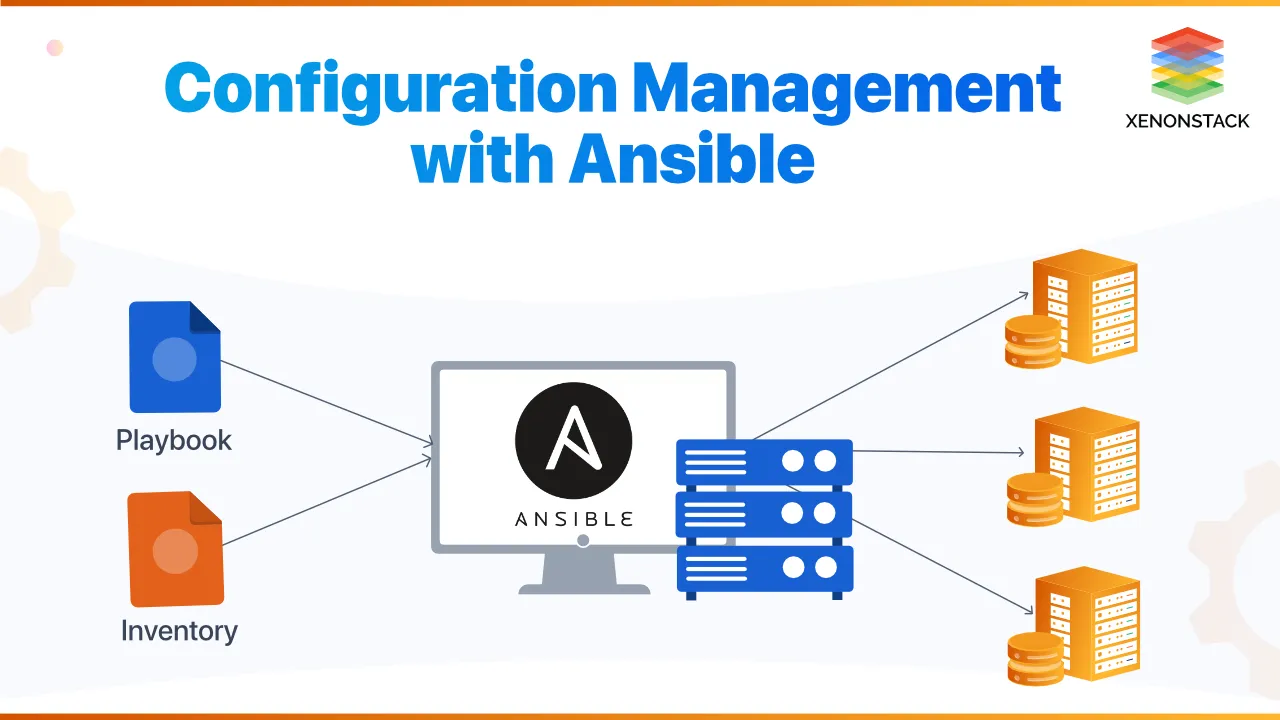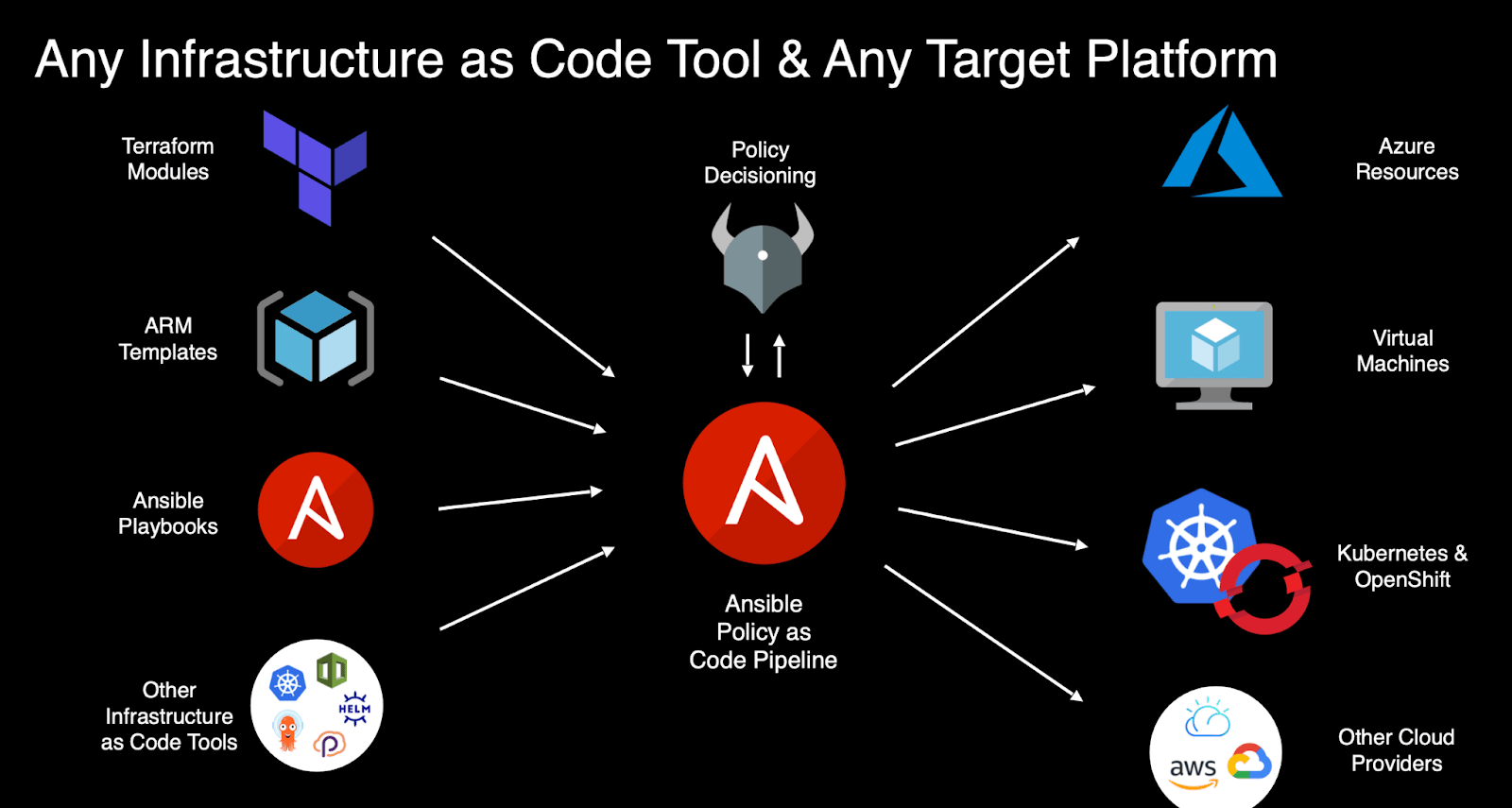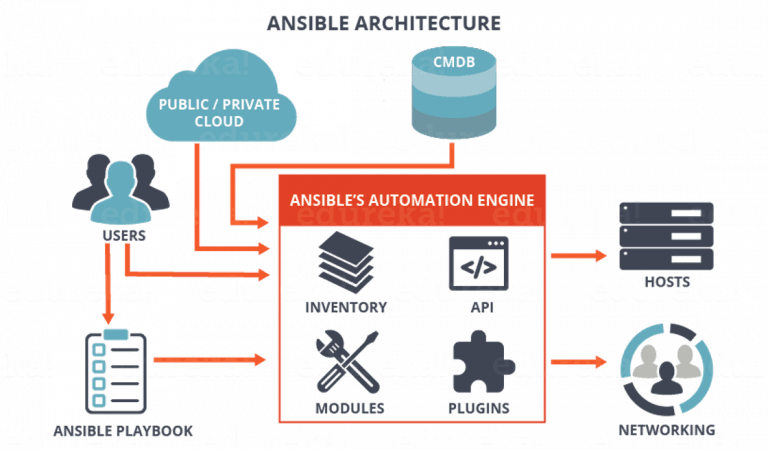Ansible
Elevate your IT automation with our Ansible implementation services. We'll empower your organization with efficient and automated solutions for enhanced productivity.

Elevate your IT automation with our Ansible implementation services. We'll empower your organization with efficient and automated solutions for enhanced productivity.

Ansible is an open-source automation tool and configuration management system that simplifies and streamlines IT operations and software deployment. It allows you to automate tasks, manage infrastructure, and orchestrate workflows by defining automation tasks in human-readable YAML files called “playbooks.” Ansible is designed to be agentless, meaning it doesn’t require agents or additional software to be installed on remote systems. Instead, it uses SSH or other communication protocols to execute tasks on remote servers and devices.
Ansible operates without the need for agents or additional software on managed systems, reducing complexity and resource overhead.
Ansible playbooks and configurations are written in YAML, a human-readable format, making them easy to understand and maintain.
Ansible uses a declarative approach, where you define the desired state of the system, rather than specifying explicit steps, promoting idempotence.
Ansible allows you to define and manage infrastructure and configurations as code, enabling version control, collaboration, and reproducibility.
Ansible provides a vast library of modules that enable automation across a wide range of systems, including servers, networking devices, cloud services, and more.
Ansible playbooks are idempotent, ensuring that running the same playbook multiple times has the same result, reducing the risk of unintended changes.
Ansible can orchestrate complex workflows by defining the order and dependencies of tasks, making it suitable for multi-step processes and application deployments.
Ansible supports rolling updates, allowing you to update systems or applications with minimal downtime and risk.
Ansible's inventory system allows you to define and organize your managed hosts, making it easy to target specific systems or groups of systems.
Ansible can generate inventories dynamically based on external sources, such as cloud provider APIs or other databases.
Ansible can execute tasks on multiple hosts in parallel, improving performance and efficiency.
Ansible follows security best practices, including the use of SSH or other secure protocols for communication, and offers features like vaulted variables for managing sensitive data.
Ansible has a vibrant community of users and contributors, providing extensive documentation, roles, and modules, as well as integrations with other tools and services.
Ansible can manage infrastructure at scale, making it suitable for both small environments and large enterprise deployments.
Ansible can be integrated with various tools and services, including version control systems, CI/CD pipelines, monitoring solutions, and more.
Ansible allows you to create custom modules and plugins to extend its functionality and tailor automation to your specific needs.
Ansible implementation involves integrating and deploying Ansible, an open-source automation tool, to streamline IT operations and automate tasks within an organization’s infrastructure. It enables the efficient management of servers, applications, and networks through automation, ensuring consistency, reducing manual errors, and saving time. Ansible’s agentless architecture and declarative language make it a powerful choice for automating tasks across various platforms and systems.

Ansible custom module development refers to creating specialized modules or extensions within the Ansible automation framework. These custom modules are tailored to meet specific automation needs and can be used to extend Ansible’s functionality beyond its built-in modules. Custom modules allow organizations to automate unique tasks, integrate with proprietary systems, and further customize their automation workflows to align perfectly with their requirements.

Ansible maintenance involves the ongoing management and optimization of Ansible automation playbooks, inventories, and configurations. This includes tasks such as updating playbooks to accommodate changes in infrastructure, ensuring that inventories are up to date, applying Ansible updates and security patches, and optimizing automation processes for efficiency. Regular Ansible maintenance is essential to keep automation workflows running smoothly and effectively.
